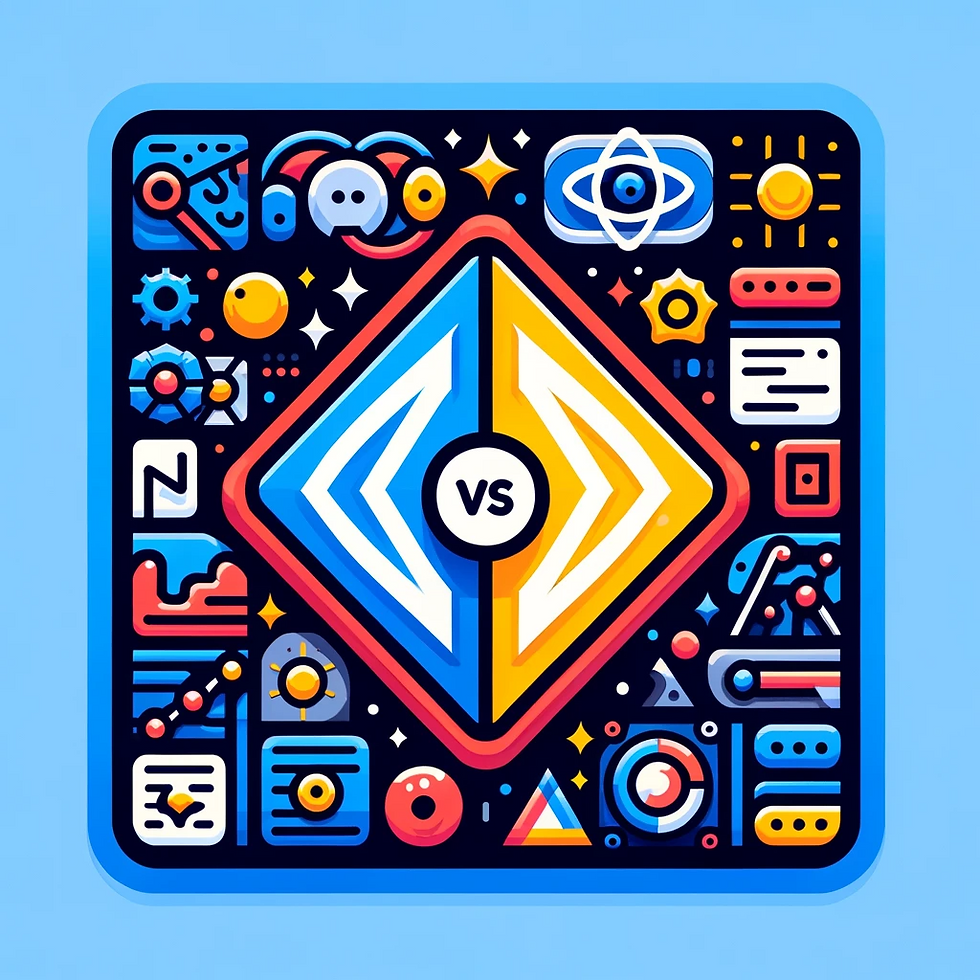PHP - The Versatile Scripting Language: An In-Depth Guide
- Emre Tosun
- 9 Eki 2023
- 3 dakikada okunur
Güncelleme tarihi: 13 Eki 2023
Introduction
PHP, an acronym for "Hypertext Preprocessor," is a dynamic, server-side scripting language that has significantly impacted the world of web development. This comprehensive guide takes a deep dive into PHP, exploring its historical evolution, myriad advantages, notable disadvantages, and when and why it should be the language of choice for developers.
1. The Evolution of PHP: From Rasmus Lerdorf to PHP 8
History: PHP originated in the mid-1990s when Rasmus Lerdorf created a set of CGI scripts to manage his online resume. These scripts evolved into a scripting language, with PHP/FI (Personal Home Page/Forms Interpreter) as its first official release. Over time, PHP 3 introduced the concept of a server-side HTML embeddable language, marking a significant shift in its capabilities. Subsequent versions like PHP 4, PHP 5, PHP 7, and the latest PHP 8 brought substantial enhancements, including improved performance, robust object-oriented programming support, and Just-In-Time (JIT) compilation.
2. The Advantages of PHP: A Versatile Tool for Developers
Versatility:
PHP's versatility is evident in its ability to seamlessly embed dynamic content within HTML, making it an ideal choice for mixing static and dynamic web elements. It extends beyond HTML, enabling the generation of XML, PDFs, and more.
Wide Adoption:
PHP boasts an impressive global presence, supported by countless web hosting services, platforms, and web servers, making it readily accessible to developers worldwide.
Strong Community:
The backbone of PHP's strength is its large and active developer community, which continuously contributes to its growth. This community maintains frameworks, libraries, and forums, offering an extensive support network.
Rapid Development:
PHP accelerates web development through a wealth of pre-built functions and libraries. Developers can swiftly address common tasks, such as interacting with databases, handling forms, and session management, streamlining the development process.
Cross-Platform Compatibility:
One of PHP's key strengths is its platform independence. Whether you're operating on Windows, macOS, Linux, or various other systems, PHP operates consistently across them all.
3. The Disadvantages of PHP: Where it Falls Short
Inconsistent Function Names:
Historically, PHP's standard library featured inconsistent naming conventions, which at times led to developer confusion and inconsistency.
Limited Object-Oriented Features (in older versions):
In earlier versions, PHP lacked some advanced object-oriented programming (OOP) features when compared to languages like Python or Java. However, these limitations have been increasingly addressed in later PHP versions.
Not Ideal for CPU-Intensive Tasks:
PHP is not the best choice for CPU-intensive operations, where languages like C++ or Python with specialized libraries may outperform it.
Security Concerns:
PHP has faced security challenges due to its popularity and coding practices. However, PHP has actively worked on addressing these issues in recent versions, enhancing its security.
4. When to Use PHP: Ideal Use Cases
Web Development:
PHP is a natural fit for web development, allowing developers to build dynamic websites, web applications, content management systems (CMS), e-commerce platforms, and blogs.
Server-Side Scripting:
PHP shines in server-side scripting, handling tasks such as processing form data, connecting to databases, and generating dynamic web content. It's especially beneficial for scenarios where user input and data manipulation are required.
Rapid Prototyping:
PHP is well-suited for rapid prototyping, enabling developers to quickly create functional proof-of-concept applications or test new features with minimal effort.
5. Why Use PHP: A Compelling Choice for Developers
Abundance of Resources:
PHP enjoys extensive support from a worldwide community of developers. It boasts a wealth of resources, including comprehensive documentation, active forums, tutorials, and open-source projects, simplifying the learning curve and troubleshooting process.
Cross-Platform Compatibility:
PHP's compatibility across diverse operating systems offers developers flexibility in choosing deployment environments, from shared hosting to cloud servers.
Performance Improvements:
The introduction of PHP 7 and PHP 8 marked significant performance enhancements, considerably improving its competitiveness in the world of web application development.
Ecosystem:
PHP thrives within a rich ecosystem of tools, frameworks, and content management systems (CMS). Popular PHP frameworks, such as Laravel and Symfony, streamline application development, while CMS like WordPress power a significant portion of the web.
Cost-Effective:
PHP's widespread support on web hosting platforms and its open-source nature make it a cost-effective choice for web development, especially for small to medium-sized projects.
Conclusion
From its humble beginnings as a set of CGI scripts to its current status as a versatile and robust scripting language, PHP has evolved significantly. With its versatility, large community, and cross-platform compatibility, PHP remains a valuable tool for web developers. While past concerns such as inconsistent function names and security vulnerabilities have been addressed, PHP continues to excel in web development, particularly in scenarios where rapid prototyping and dynamic content generation are required.




